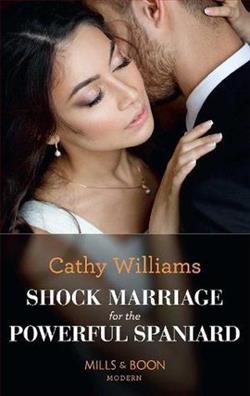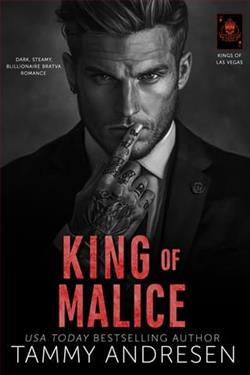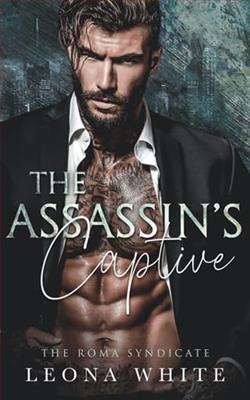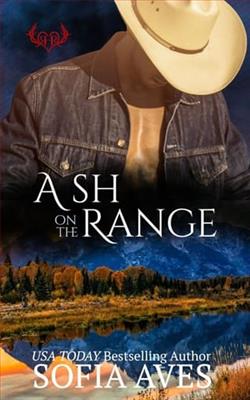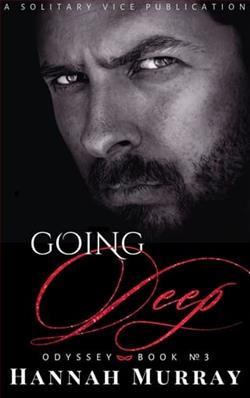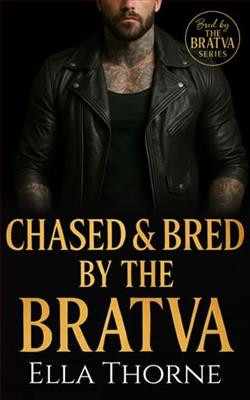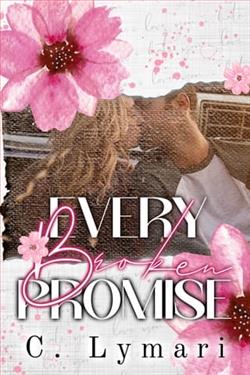Page 28 of The Road to Avalon
Archfedd bent over, examining the rock pools. “Whydoesthe sea come in and out the way it does? Grandmother told me how, when it’s right in up to the cliffs, the smaller trading ships can beach themselves. They let the sea recede, unpack their goods and take on the tin ingots. Then their boats refloat when the sea comes up again. I’d like to see that.”
I pushed a few strands of loose hair out of my eyes, squinting against the intensity of the sunlight. Had it ever been this bright in my old world? “I believe it’s the influence of the moon that causes tides.”
She snorted. “That’s silly. It’s sosmall, and some nights it’s barely there at all.” She laughed at the impossibility of so tiny a thing having power over the sea, and, losing interest, wandered away. I leaned back against the warm rocks and closed my eyes, content to doze in the sun. The ever-present gulls, backs bent like scimitars against the wind, called to each other, and the waves thundered on the shore, retreating with a sucking sound.
I’m back on the other beach with my father: him dressed in his customary tweed suit, bow tie and brogues; me and my twin brother, Artie, in more appropriate summer garments of shorts and t-shirts. “Some thought this site was only a religious one, populated by Celtic monks,” my father proclaims, pointing up toward the out-of-sight remains of the thirteenth-century stone castle. “And some foolishly thought those stone ruins up there were Arthurian.” He snorts with derision. “It came as a surprise to many when evidence proved that Tintagel must have been the stronghold of a powerful Arthurian era warlord.”
Cei, and before him, his father, Gorlois.
Archfedd sat down beside me with a thump, disturbing my dreams.
I opened my eyes.
The wind had loosened strands of her sun-bleached hair and made a tangle of it, and her face was flushed from the wind. She leaned back as I was, eyes narrowed against the brightness.
We sat in silence for a while, just a mother and daughter, like any mother and daughter from my old world, catching a few rays on a beach. A world and life she’d never know.
Archfedd broke the silence. “Has Grandmother ever shown you her scrying glass?”
My eyes, that had fallen shut again, jerked open, all sleepiness banished. Wide open. “Her scrying glass?” For a moment I couldn’t gather my wits to find an answer.
She nodded without looking at me, her gaze fixed on the far horizon.
What to say? I struggled with the urge to lie, not wanting to think of what I’d seen in it. “A long time ago.”
Archfedd drew her bottom lip under her top teeth, as though thinking. Maybe she felt as reticent as I did. “She showed it to me yesterday.”
Instinct warned me not to make a big thing of this. “She did?”
She nodded. “In that little round hut of hers.” She paused. “It’s… claustrophobic.”
Where she’d taken me that time, offering me what she thought was a reward for me sharing my knowledge of Arabic numerals and teaching her how better to manage her accounting. I’d stepped all unwarily into something I hadn’t liked, unable to break free. I glanced sideways at Archfedd, but she still stared straight ahead. Impossible to tell what she had or hadn’t seen, nor how she felt about it.
“I know it,” I said.
A cormorant settled on a pillar of rock on the headland, preening his dark feathers, and the sea pinks hanging over the cliff’s edge danced in the breeze.
Her tongue darted around her lips. “Did youseeanything when she showed you the glass?” She was trying to sound casual, but the tension in her voice crackled.
I was back in that little hut again, the stifling darkness all around me as I peered into the black mirror of Eigr’s scrying glass on the tabletop, seeing more than just the opaque surface– more than I wanted to see.
I hadn’t been able to tear my eyes away. Nor close them. Before me had lain a blood-stained battlefield littered with broken banners. Dead horses and a river that ran red with spilled blood. And overhead the setting sun had stained the sky to match, drenching the world in crimson. A world where Arthur lay as if dead, eyes closed, his waxy face a mask of blood.
How could I ever have forgotten what I saw?
“No,” I said. “I saw nothing.”
We sat in silence for some minutes as clouds obscured the sun and a chill descended. A chill that sent a shiver to my bones, despite the heat of my rocky seat.
The urge to ask my daughter what she’d seen increased, but the fear she might have been privy to the same scene I’d witnessed sealed my lips. Better left unsaid.
At last, she broke the silence, her hand sneaking to take hold of mine. “She showed me the glass. Her grandmother’s glass, she said. She told me you’d looked into it and seen something. She wanted me to look, as well. She said I might have inherited her Sight. She wanted to know if I had.”
“I saw nothing,” I repeated. “Nothing but my fanciful imagining. There’s no truth to be found in a scrying glass.”
She turned to look at me out of anguished eyes. What had she seen to make her look like this?
“Mother. Mami. I looked into her glass, and I saw things I didn’t understand. Don’t understand.”








